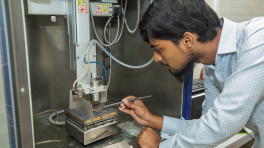61% people became jobless at any point of lockdown last year: CPD
Only 15% of them returned to their jobs by one month while 85% of them were unemployed for a longer time

More than 61% of people became jobless due to the adverse impact of the Covid-19 lockdown period in March-April last year, who were engaged in economic activities before the pre-Covid-19 time, revealed a study conducted by the Center for Policy Dialogue (CPD).
According to the study, only 15% of them returned to their jobs by one month while 85% of them were unemployed for a longer time.
The CPD and Oxfam in Bangladesh jointly published the report through a virtual dialogue on Wednesday.
Towfiqul Islam Khan, senior research fellow of CPD, presented the keynote speech titled "Income and Employment in Covid Times: How the People are Coping - Findings from a Household Survey."
He said the report was prepared based on a survey conducted in late January and early February from 2,600 households equally selected from rural and urban areas.
Despite the full recovery of jobs before the second wave of the Covid-19, average working hours of the people were reduced by 4% which decreased their wage earnings. The weekly working hours were reduced by 8.11% in the agricultural sector and 3.64% in the industrial sector, said the report.
The report revealed that, on average, about 45% of households had a lower income compared to the pre-Covid-19 period.
Average income was reduced by 12% compared to the pre-covid-19 time while people engaged in agriculture, forestry and fishing faced a loss of 16.50% of their previous income.
Income for people in the manufacturing sector was reduced by 13%, wholesale, retail trade, motor and vehicle repairing sectors by 14% and about 9% in both construction, transportation and storage sectors.
The study said about 40% of the employed people had their employment situation worse than the pre-Covid-19 period while only 8% reported better situations.
About 86% of individuals are not earning enough to meet their daily necessities and about 78% of the households had reduced expenditure to cope with the impact, while 52% changed dietary patterns involuntarily.
About half of households experienced a decline in savings and more than half of the households had to resort to borrowings. The average loan size of the households doubled in the last year.
Support from the government was limited and only 20% of the households could receive some form of government support, revealed the report.
CPD Chairman Professor Rehman Sobhan, Distinguished Fellow Dr Debapriya Bhattacharya and Professor Mustafizur Rahman, Tapan Chowdhury, former advisor to the Caretaker Government and managing director of Square Pharmaceutical, Shahidullah Azim, vice president of the BGMEA, Dr Fahmida Khatun, executive director of the CPD, Dr Dipankar Datta, country director of Oxfam in Bangladesh were connected to the event.


 Keep updated, follow The Business Standard's Google news channel
Keep updated, follow The Business Standard's Google news channel















